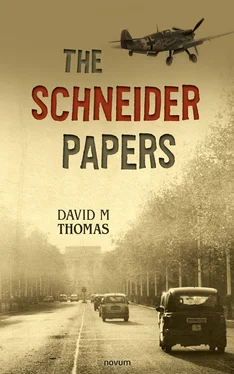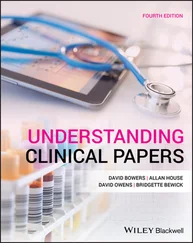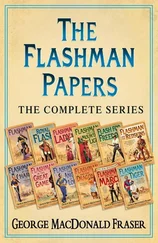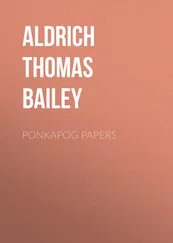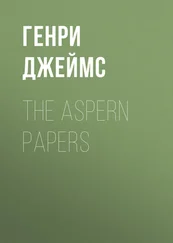The elevator moved him soundlessly to the second floor. The doors opened and there to greet him was a face from the past, name or location not quite instantly remembered. He was slim, of average height, with dark wavy hair and an already noticeable receding hair line, which made him look older, but gave him a more intellectual appearance. He was not in uniform. A dark blue blazer complimented the RAF tie.
‘Squadron Leader Mason, good to see you again sir, its Matthews! Remember me? Tangmere?’ Flight Lieutenant Matthews, now also on the auxiliary list, offered his hand and with the other gestured the way to Room 251.
‘Ah, yes of course I remember you Matthews. How’s the arm?’ Mason replied with a smirk as he clearly remembered this hothead as they walked together down the wide, light blue painted corridor. The incident of the impromptu rugby match in the officers’ mess. ‘Somebody broke it, didn’t they? Did you ever find out who was responsible?’
‘Err … no sir, I was the silly arse at the bottom of the pile. All up before the Station Commander next morning, we left the defence arguments to Archie Crawford, he’d finished his solicitor articles before joining up. He petitioned a plea of collective responsibility to the fracas, damage to my arm by person or persons unknown due to the pyramid nature of bodies on top of my good self.’ After the standard dressing down, Station Commander accepted the defence position. ‘Breakages to be paid for before the end of the week. Case closed. Get out!’ mimicked Matthews, smiling. ‘Your cheque to cover the damage came in pretty useful sir, and we all thank you for it.’
Talking had taken them past Room 251, so they retraced their course. Matthews opened the door ushered Mason in before him. The room was empty except for a tired looking two seater sofa and two armchairs around a small empty fireplace. A chipped formica coffee table stood under the window holding a careless pile of aeronautical and ‘Country Life’ magazines and a battered tin ashtray. Like a doctor’s waiting room. A door to the right opened and a white jacketed steward walked in. He hesitated in mid-stride, startled on seeing the arrivals; he nodded recognition and continued across the room to an opposite door, knocked and entered.
‘In there, nest of Group Captain Starling,’ whispered Matthews, smiling at his own humour. Mason acknowledged the joke and went over to the window overlooking Kingsway. It had just started to rain, and umbrellas were being opened by those who had them, while the ones that didn’t quickened their pace, heads down. The Air Force orderly silently re-entered Room 251 and went out through the door he had first entered.
After a few minutes, the door to the nest opened, and a tall, lanky, harried-looking Squadron Leader appeared: ‘The Group Captain will see you now gentlemen.’ The adjutant stayed behind and quietly closed the door. Group Captain Starling stood behind a large dark brown desk covered with three piles of light blue coloured files, one opened, three black telephones, and an ‘in’ tray half full of separate papers. Light grey filing cabinets filled one wall of the spacious office. Group Captain Starling, probably in his mid-fifties, was a short stocky man with a small trimmed moustache set in a ruddy, genial face.
An uniform does two things to a man, thought Mason looking at Starling as he walked towards him; it either enhances the physique, or highlights the downside. Starling was round and overweight, the tight uniform and wide belt exaggerating the girth to height ratio. ‘Mason,’ he said, smiling, and walked around the desk towards the two airmen, ‘it’s been a while,’ and shook hands with Mason, then turned his head and acknowledged Matthews.
‘Sorry I called you up to town late in the morning Mason, but we’ve all been busy around here. Like a rollercoaster, one meeting ends, another one begins.’
‘Yes sir’, said Mason, ‘there seems to be a lot going on these days.’
‘Indeed there is,’ replied a grim looking Starling. ‘Sit,’ he ordered, and waved them both to leather armchairs flanking the desk. Starling went back around his desk and sat down, drawing his chair close to the table, elbows on the desk and leant forward conspiratorially. ‘How are you now Mason? Recovered, I’m told,’ he half whispered with a fatherly tone, and gave Mason a wink of encouragement.
‘It seems so sir, ready for action again,’ replied Mason, rather too quickly, he thought immediately after he said it, and involuntarily furrowed his eyebrows. The Group Captain’s face showed no such recognition. One sees what one wants to see.
‘Good!’ a pause, then, ‘Good!’ with exaggerated finality. ‘Right, Matthews, see you later,’ said Starling, head down looking for something in one of the desk drawers.
‘Err, right-o sir.’ Matthews got up, winked at Mason, who half got up from his armchair and gave Matthews’ extended hand a firm shake, and then dropped back down into his seat.
What was in the left hand desk drawer was a summary copy of Mason’s psychological assessment file. It noted that his anger during and after the Court of Inquiry was a way of dealing with the death of his navigator. It was a guilt to anger transfer, quite common, the report said. It went on … he exhibits classic what we term ‘bereavement grief’. He experiences periods of depressed mood, insomnia, restlessness and irritability. The periods of these depressive and other symptoms should diminish in frequency and intensity over time. Time should be the healer. I do not recommend anti-depressant drugs for this officer. The Air Force psychiatrist had spoken privately with Major Alastair Cartwright.
‘In my opinion, Squadron Leader Mason’s depressive moods can diminish, even stop, by having a ‘cause’. Channel the guilt, convert the anger, like I said, to a ‘cause’.’
‘Something to live for, something to fight for. To make things right,’ said Cartwright, summing up.
‘Yes, exactly.’
Cartwright took it further, and admitted to Squadron Leader Dr David Bishopp, Psychiatry Department, RAF Medical Branch, ‘I like his aggrievement, and I want to control and focus it.’
‘You’ll see more of Matthews later, let’s move to the conference table.’ Starling gestured to the long table and chairs that took up most of the far corner opposite his desk. The room was large, with floor to ceiling light wood panelling, and dominated by a large red brick fireplace. Where once there would have been a cosy coal fire there was now a three bar electric fire fitted into the grate recess. Framed aircraft pictures were in groups along the walls, with pride of place over the fireplace given to a Squadron group pictorial, captioned France, 1915. Somewhere in the rows of grey and blue uniforms was the young Starling. Behind Starling’s desk on the wall were the more personal picture gallery; a very shy young Starling holding a cricket bat at wicket one summer’s day long ago; a sailing picture with a determined looking young Starling with both hands on the tiller, steering; an end of final year school team taken on the school rugby field, most of them now lying under fields in northern France. A picture gallery of Starling’s life. Interestingly, no personal photographs, no wife, no family. The room reminded Mason of school days. The headmaster’s study. Comfortable, homely, the smell of polish and authority. Institutional and all powerful.
‘We’ll be joined by others for a discussion or, as they say, a forum on a subject of national importance,’ he said as he picked up the receiver of one of the telephones on the desk and began speaking as he slowly turned his back on Mason. With his free hand, Starling gestured to the table, finished his telephone call, and walked towards the office door which led out to the corridor. ‘Five minutes,’ he said, and left.
Читать дальше
